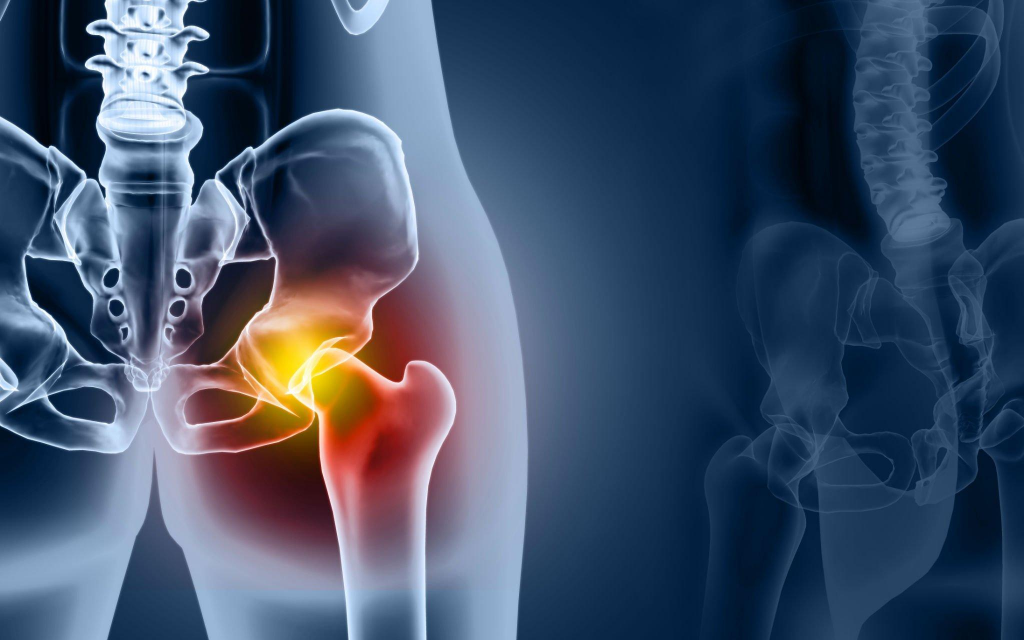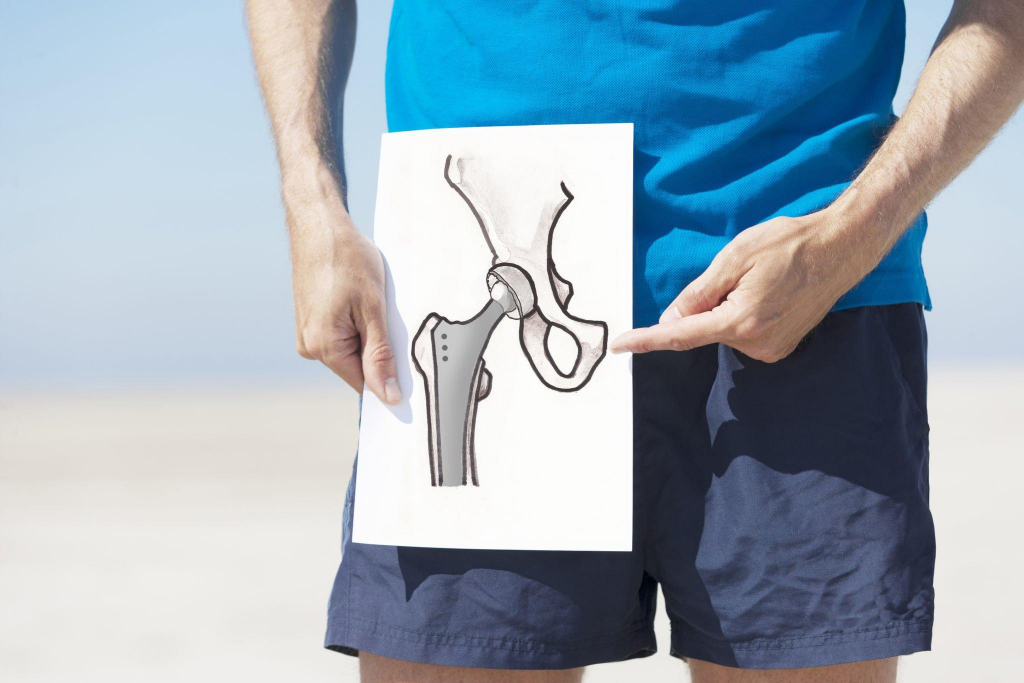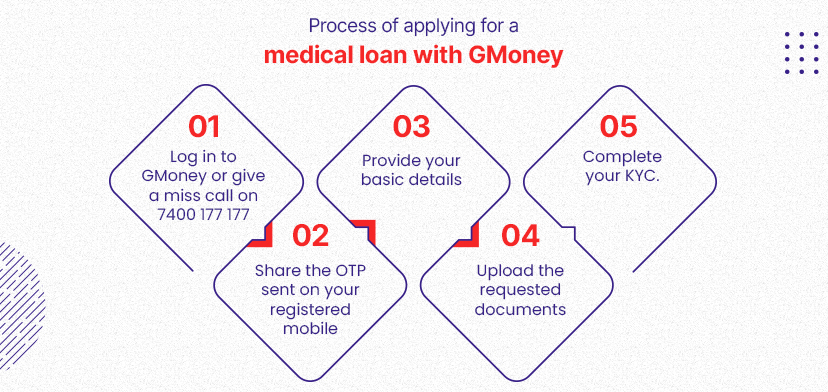Home » Hip Replacement Surgery: How It works And What To Expect

If you are considering hip replacement surgery, you must be having tens of questions and queries. And it can be frustrating especially when you are dealing with the pain due to your condition and you don’t have someone to answer you. Worry not, this blog will help you find answers to your questions as well as guide you through hip replacement surgery.
Arthritis, avascular necrosis, and fractures are common causes of hip joint inflammation and may lead to degeneration in the hip joint and cause chronic discomfort. You may think that nonsurgical treatment such as physical therapy, medicines, and activity adjustments can help relieve pain, but these measures can only help you temporarily, and the pain may return. Furthermore, the everlasting pain is too much to handle, and it can obstruct daily activities and make it difficult to perform them.
For such individuals, osteologists and surgeons recommend hip replacement surgery. In some cases, total hip replacement surgery is also prescribed, in which the whole joint is replaced with prosthetics.

There could be several causes and factors contributing to your hip joint pain. These may include arthritis, avascular necrosis, fractures, and even overuse due to vigorous exercise.
Hip replacement surgery has proven to be a very effective solution for relieving hip joint pain as well as providing a more stable and secure connection between the bones of the hip joint. After hip replacement surgery, a lot of people all over the world say they no longer feel as much pain.
Ed Caruthers, a man in his 70s who had suffered from hip joint pain for many years, recently underwent hip replacement surgeries and has seen remarkable results.
He had both hips replaced, the right one in December 2019 at the age of 62 and the left one in April 2022, at the age of 65. The surgeries were elective and performed under general anaesthesia. Following the procedure, he underwent physical and occupational therapy, gradually increasing his walking distance.
Two days later, he was able to return home and walk unaided after three weeks. He was unable to drive for 4–6 weeks and lift heavy items for 12 weeks. Six weeks after surgery, he resumed his daily activities. He had to be careful not to bend or fall to avoid dislocation and the need for further surgery. The second surgery recovered faster than the first.
Now in his 70s, he can participate in recreational activities with his grandchildren and walk without assistance. He is grateful to have been able to return to a healthy lifestyle, free of pain.
This gives you some hope, right?
Let’s start with a definition of hip replacement surgery.
The hip joint is a major weight-bearing joint in the body that is made up of the pelvic bone’s socket (acetabulum) and a rounded bone (femur head). The injured hip joint is removed during hip replacement surgery and replaced with an artificial hip joint.
The new artificial joint is made out of metal and plastic components and is designed to move like a normal hip joint.
The total hip replacement surgery is performed by an orthopaedic surgeon, with the patient under general anaesthesia. Depending on the severity of the condition, the patient may be hospitalised for a few days or perhaps a few weeks following surgery.
Post-treatment, physical therapy is needed to assist the patient to regain hip joint function and range of motion.
Hip replacement surgery is intended to relieve pain and improve quality of life. In most situations, patients see an immediate and noticeable improvement in their pain levels following surgery, and their mobility is restored.
The procedure also improves the patient’s ability to engage in routine daily activities such as walking, running, or climbing stairs. Furthermore, some patients may experience improved stability, balance, and posture as a result of the procedure.

Improved Quality of Life
One of the most significant benefits of hip replacement surgery is the improved quality of life it provides. Following surgery, many patients report feeling stronger, more energetic, and more independent. They also report feeling less discomfort and having a greater range of motion. Furthermore, patients have reported improved posture and balance.
Increased Mobility
Another advantage of hip replacement surgery is that it can aid in mobility. Patients who get the surgery report being able to move more freely and with less pain and suffering. This enhanced mobility can benefit daily tasks such as walking, running, and climbing stairs.
Furthermore, patients may be able to participate in sports they were unable to do before the operation, such as swimming or biking.
Reduced Pain and Discomfort
Hip replacement surgery can also help to alleviate pain and discomfort caused by the condition. Because the hip joint has been replaced, less pressure is imposed on the surrounding muscles, tendons, and ligaments, which can relieve discomfort and stiffness. Furthermore, the replacement hip joint is usually more stable than the old one, allowing patients to move with greater ease and confidence. All of these advantages contribute to the patient’s overall well-being.
Increased Confidence
Last but not least, hip replacement surgery might boost a patient’s self-esteem. Knowing they have a strong and durable joint that can handle daily activities can give patients the confidence to pursue activities they may have avoided prior to surgery. This increased confidence, with proper care and maintenance, can lead to a better and more fulfilled existence.

The prospect of undergoing hip replacement surgery may appear to be a blessing at first (and it is), but there are certain problems that must be considered. These include the procedure’s expense as well as the hazards of anaesthesia and surgery in general.
Hip Replacement Surgery Cost in Major Cities of India
The cost of hip replacement surgery in India might vary greatly depending on the city where the treatment is performed.
| City | Price Range (Min-Max) |
| Ahmedabad | Rs. 7000 – Rs. 6,50,000 |
| Bangalore | Rs. 55,000 – Rs. 7,00,000 |
| Chandigarh | Rs. 3,00,000 – Rs. 5,00,000 |
| Chennai | Rs. 90,000 – Rs. 5,00,000 |
| Gurgaon | Rs. 30,000 – Rs. 5,00,000 |
| Hyderabad | Rs. 70,000 – Rs. 8,00,000 |
| Kolkata | Rs. 30,000 – Rs. 5,00,000 |
| Mumbai | Rs. 47,000 – Rs. 8,00,000 |
| New Delhi | Rs. 35,000 – Rs. 8,00,000 |
| Noida | Rs. 70,000 – Rs. 3,00,000 |
| Pune | Rs. 60,000 – Rs. 8,00,000 |
The cost of post-operative care and rehabilitation may also be included. It is crucial to remember, however, that the benefits of the treatment frequently surpass the expenditures, and patients frequently report an overall improved quality of life following the surgery. Furthermore, there are several choices for financing the procedure, such as a no-cost EMI medical loan.
Recovery Time
Another concern with hip replacement surgery is that recovery time is lengthy. A patient’s recovery to normal activity usually takes four to six weeks. During this time, the patient may require assistance with daily duties such as dressing and going to the washroom.
In addition, depending on the complexity of the operation and the patient’s health, more physical therapy and rehabilitation may be required to help them restore strength and mobility.
Potential Complications
Finally, keep in mind that hip replacement surgery can have consequences. Infection, haemorrhage, and nerve injury are all dangers that can occur, though they are uncommon. The risks are negligible if the procedure is conducted by an experienced and trained surgeon. Nonetheless, before electing to have hip replacement surgery, it is critical to be aware of the potential complications.
The typical hip replacement surgery cost in India ranges from ₹1,50,000 to ₹2,50,000, depending on the type of implant used and the procedure involved. This expense can be a significant barrier for many patients who may be unable to afford the surgery. Another consideration is the cost of post-operative care and rehabilitation, which can quickly mount up.
The benefits of the procedure, however, often surpass the costs, as patients frequently report an overall improved quality of life. You can also get a GMoney no-cost EMI medical loan for hip replacement surgery.
When considering the risks associated with hip replacement surgery, one should weigh the risks and benefits of having surgery versus living without it. And as it’s a surgery for your ailment, like any other surgery, it’s either living with the pain and disability or going for the surgery. Yes, there are some risks, but even driving on the road is risky.
While there are some rare cases in which patients took longer to recover than anticipated or experienced more pain than expected during recovery, these cases are not the norm.
Maybe the following short case study will help you get the point:
A 61-year-old man named Kay Lowe had to decide whether or not to have hip replacement surgery. He had arthritis in his hip, which made it difficult for him to go about his daily chores. Kay made the decision to proceed with the operation since he was generally in good condition and had a minimal surgical risk.
Kay’s story illustrates the sorts of judgments that must be taken while considering surgery. It is critical to consider the patient’s age, health, and medical history, as well as potential surgical risks, in order to make the best educated choice possible. In Kay’s instance, the dangers of the operation were balanced by the possible advantage of no longer having to live with the discomfort. However, for elderly individuals with many medical concerns, it may be better to manage their pain with medicine and treatment rather than surgery. It is ultimately up to the patient and their family to make this choice.
Delaying hip replacement surgery can raise the risk of problems and additional deterioration of the hip joint, according to medical experts. The hip joint may get more injured as the problem worsens, making surgery more difficult and potentially less successful. Furthermore, the longer a patient waits for surgery, the more likely he or she will develop secondary diseases such as persistent pain, stiffness, and muscular weakness.
Many people may postpone surgery owing to financial limitations. The operation and post-operative care can be expensive, and some people may not be able to afford it. A GMoney medical loan can assist to minimize the financial load in these circumstances by providing a way to pay for the surgery and associated fees over time.
When it comes to the financial difficulties that come with hip replacement surgery, GMoney can be a one-stop solution. You can apply for a medical loan for hip replacement surgery with GMoney with ease and convenience and get operated on by the best hip replacement surgeon in India. The procedure is straightforward and simple. GMoney’s medical loan for hip replacement surgery includes no-cost EMI and flexible repayment choices, allowing you to pay without breaking the bank.

1. What is hip replacement surgery?
Hip replacement surgery is a medical procedure that involves replacing a damaged or worn hip joint with a prosthetic hip joint. This procedure is typically recommended for patients who have severe hip pain or stiffness that does not respond to other treatments.
2. What are the risks associated with hip replacement surgery?
While hip replacement surgery is generally safe when performed by a qualified and experienced surgeon, there are some risks to be aware of before deciding to undergo the procedure. Potential risks include infection, blood clots, dislocation, and nerve damage.
3. Is there a way to finance hip replacement surgery?
Yes. GMoney offers medical loans for hip replacement surgery that come with no-cost EMI and flexible repayment options, so you can pay without stressing about your budget.
4. What are the advantages of hip replacement surgery?
Hip replacement surgery can lead to improved mobility and quality of life for patients. It can also help relieve chronic pain and stiffness in the hip joint.
5. How much time does it take to recover after hip replacement surgery?
The recovery period for hip replacement surgery can vary, depending on the individual’s age, overall health, and the type of procedure performed. Generally, most patients can expect to return to their normal activities within two to three months after the surgery.
In conclusion, hip replacement surgery can be a game changer for people who suffer from hip pain and mobility limitations. It provides numerous benefits, including pain reduction, increased mobility, and improved quality of life. However, as with any operation, it has drawbacks such as recovery time and potential problems.
Before electing to have hip replacement surgery, individuals should carefully analyse their options and examine their unique circumstances. They should also be aware of the dangers of postponing surgery and the long-term implications of living with untreated hip pain.
As a doctor, I understand that deciding whether or not to have surgery can be tough, especially when money is an issue. However, I urge people not to let financial concerns keep them from receiving the care they require. There are solutions available, such as a GMoney medical loan, to assist with the expense of the surgery.
Remember, surgery > > > pain. Don’t let pain control your life. Seek medical advice, weigh your options and make the best decision for yourself.
Disclaimer: THIS WEBSITE DOES NOT PROVIDE MEDICAL ADVICE.
Follow us
Reach us
Mumbai HO
GMoney Pvt. Ltd.
315, 215 Atrium,
Next to Courtyard by Marriott,,
A.K. Road, Andheri East,
Mumbai - 400093
Ph : +91 86570 00105, +91 72089 60444
Quick Links
Bengaluru
GMoney Technologies Pvt. Ltd.
Oyo Work Spaces, Umiya Emporium,
Opposite Forum Mall, Hosur Rd,
Koramangala, Bengaluru,
Karnataka 560029
Ph : +91 89717 34815
Delhi
GMoney Technologies Pvt. Ltd.
Berry Co Works, 1E/3,
Jhandewalan extension,
Next to jhandewalan metro station
gate no. 2 Barakhambha Road,
New Delhi, Delhi 110001
Ph : +91 97116 26832
Pune
GMoney Technologies Pvt. Ltd.
91 Spring Board, Sky Loft,
Creaticity Mall, Off, Airport Rd,
opposite Golf Course, Shastrinagar,
Yerawada, Pune,
Maharashtra 411006
Ph : +91 84250 28758
Chandigarh
GMoney Technologies Pvt. Ltd.
SCO no. 292,
First Floor, Sector 35D,
Chandigarh
Ph : +91 84279 82012
Jaipur
GMoney Pvt. Ltd.
CODESKK Civil Tower,121 122,
Pandit TN Mishra Marg,
Santhosh Nagar, Nirman Nagar,
Jaipur – 302019
Ahmedabad
GMoney Pvt. Ltd.
22nd Floor, B Block,
Westgate By True Value,
Nr. YMCA Club, SG Highway,
Ahmedabad – 380051
Hyderabad
GMoney Pvt. Ltd.
Dwaraka Pride,
Plot no. 4/1, Survey No. 64,
Huda Techno Enclave, Madhapur,
Hyderabad (Telangana) – 500081
Chennai
GMoney Pvt. Ltd.
DBS Business Center, 31A,
Cathedral Garden Rd, Badrikari, Tirumurthy Nagar, Nungambakkam, Chennai, Tamil
Nadu – 600 034
Mumbai HO
GMoney Pvt. Ltd.
315, 215 Atrium,
Next to Courtyard by Marriott,,
A.K. Road, Andheri East,
Mumbai - 400093
Ph : +91 86570 00105, +91 72089 60444
Bengaluru
GMoney Pvt. Ltd.
Oyo Work Spaces,
Umiya Emporium,
Opp. Forum Mall, Hosur Rd,
Koramangala, Bengaluru,
Karnataka - 560029
Ph : +91 72089 60444
Pune
GMoney Pvt. Ltd.
91 Spring Board, Sky Loft,
Creaticity Mall, Airport Rd,
Opp. Golf Course, Shastrinagar,
Yerawada, Pune,
Maharashtra - 411006
Ph : +91 72089 60444
Delhi
GMoney Pvt. Ltd.
Berry Co Works, 1E/3,
Jhandewalan extension,
Gate no. 2 Barakhambha Road,
New Delhi, Delhi - 110001
Ph :
+91 72089 60444
Chandigarh
GMoney Pvt. Ltd.
SCO No. 292,
First Floor, Sector 35D,
Chandigarh - 160022
Ph : +91 72089 60444
Ahmedabad
GMoney Pvt. Ltd.
22nd Floor, B Block,
Westgate By True Value,
Nr. YMCA Club, SG Highway,
Ahmedabad - 380051
Hyderabad
GMoney Pvt. Ltd.
Dwaraka Pride,
Plot no. 4/1, Survey No. 64,
Huda Techno Enclave, Madhapur,
Hyderabad (Telangana) - 500081
Jaipur
GMoney Pvt. Ltd.
CODESKK Civil Tower,121 122,
Pandit TN Mishra Marg,
Santhosh Nagar, Nirman Nagar,
Jaipur - 302019
Chennai
GMoney Pvt. Ltd.
DBS Business Center, 31A,
Cathedral Garden Rd, Badrikari,
Tirumurthy Nagar,Nungambakkam, Chennai,
Tamil
Nadu - 600 034
Pune | Mumbai | New Delhi | Kolkata | Chennai | Navi Mumbai| Bengaluru | Ahmedabad | Nagpur | Hyderabad | Jaipur | Lucknow | Bhopal | Bhubaneswar | Nashik | Indore | Ghaziabad | Kanpur | Amritsar | Vasai | Noida | Gurugram | Chandigarh | Ranchi | Cuttack | Thane | Kalyan | Jalandhar | Kolhapur | Visakhapatnam | Chakan| Greater Noida | Wagholi | Raipur | Panvel | Belgaum | Mohali | Bhiwandi | Talegaon | Coimbatore | Palghar | Mumbra | Sangli | Surat | Durgapur | Ludhiana | Kochi | Agra | Ahmednagar | Ajmer | Akola | Aurangabad | Baroda | Beed | Rewari | Patiala | Vellore | Ranjangaon | Nanded | Nellore | Panipat | Panjim | Madurai | Mysore | Mangalore | Korba | Mathura | Kalaburagi | Jalgaon | Kharar | Guwahati | Kollam | Jamshedpur | Gwalior | Saswad | Solapur | Varanasi | Salem | Sambalpur | Jodhpur | Hubli | Panchkula | Faridabad | Amravati | Ayodhya | Badlapur | Dehradun | Parbhani | Ujjain | Udaipur | Tiruchirappalli | Srinagar | Shimla | Secunderabad | Ratnagiri | Pandharpur | Ananthapuram | Buldhana | Hadapsar | Baramati | Chittoor | Darjeeling | Dhule | Fatehpur | Gandhinagar | Haridwar | Gorakhpur | Jhansi | Kanchipuram | Kartarpur | Kurukshetra | Pondicherry | Prayagraj | Bharuch | Bhusawal | Bathinda | Pathankot | Nandurbar | Niphad | Kolar | Ambala | Kota | Pendurthi | Jabalpur | Palwal | Bhilai | Bhiwani | Bilaspur | Patna | Rohtak | Phagwara | Malegaon | Vijayawada | Bikaner | Chiplun | Darbhanga | Roorkee | Bhor | Rajahmundry | Margao | Alwar | Dhanbad | Bulandshahr | Aluva | Mulshi | Davanagere | Kapurthala | Anantapur | Loni | Latur | Gondia | Chhindwara | Chandrapur | Dharmapuri-TN | Faridkot | Dharwad | Daund | Chaksu | Bareilly | Kakinada | Haldwani | Doddaballapur | Dindori-MH | Bagru | Kudus | Kozhikode | Gurdaspur | Bokaro | Berhampur | Batala | Barrackpore | Ramgarh | Meerut | Bassi | Dera Bassi | Howrah | Karjat Raigarh | Thiruvananthapuram | Bheemunipatnam | Ambegoan | Allahabad | Aligarh | Alappuzha | Tirupathi | Thoppumpady | Srikakulam | Siliguri | Rourkela | Mirzapur | Gadag | Bellary | Tumkur | Sonipat | Hoshangabad | Junnar | Jalna | Hisar | Karnal | Kottayam | Muzzafarnagar | Ramnagara | Thrissur | Bahadurgarh | Balasore | Baraut | Dhar | Ernakulam | Gadhinglaj | Chikodi | Vaniyambadi | Kamothe |